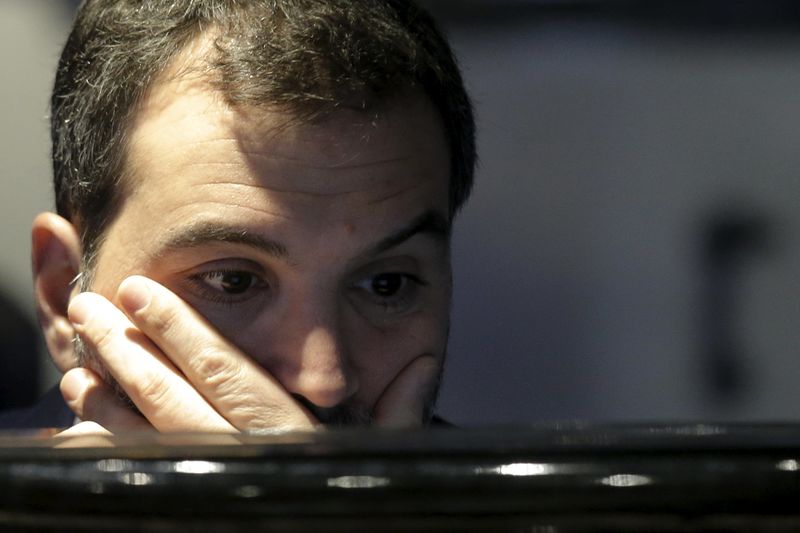This post was originally published on this site
https://i-invdn-com.akamaized.net/trkd-images/LYNXMPEH2E12C_L.jpg
GENEVA/COPENHAGEN (Reuters) – The World Health Organization appealed to countries on Monday not to pause vaccination campaigns after two more European nations and one in Asia joined a handful which have suspended use of AstraZeneca (NASDAQ:AZN)’s COVID-19 vaccine over safety fears.
Thailand announced plans on Monday to go ahead with the Anglo-Swedish firm’s shot but Indonesia said it would wait after Ireland and the Netherlands announced suspensions on Sunday.
Denmark and Norway have reported isolated cases of bleeding, blood clots and a low platelet count after the AstraZeneca vaccine. Iceland and Bulgaria had earlier suspended its use while Austria and Italy have stopped using particular batches.
France, Germany and the United Kingdom say they have no concerns.
The WHO said its advisory panel was reviewing reports related to the shot and would release its findings as soon as possible. But it said it was unlikely to change its recommendations, issued last month, for widespread use, including in countries where the South African variant of the virus may reduce its efficacy.
“As of today, there is no evidence that the incidents are caused by the vaccine and it is important that vaccination campaigns continue so that we can save lives and stem severe disease from the virus,” WHO spokesman Christian Lindmeier said.
AstraZeneca’s shot was among the first and cheapest to be developed and launched at volume since the coronavirus was first identified in central China at the end of 2019 and is set to be the mainstay of vaccination programmes in much of the developing world. The virus has killed more than 2.7 million people.
Thailand became the first country outside Europe to delay rolling out the vaccine on Friday, when its political leaders were due to have the first shots, but the government said on Monday they would receive the AstraZeneca vaccine on Tuesday.
Indonesia, however, said it would delay administering the shot due to the reports of blood clots among some recipients in Europe and would await a review from the WHO.
The WHO had already said there was no indication the events were caused by the vaccination, a view also expressed by the European Medicines Agency (EMA), which said the number of reported blood clots was no higher than seen in the general population.
The handful of reported side-effects in Europe have upset vaccination programmes already under pressure over slow rollouts and vaccine scepticism in some countries.
The Netherlands said on Monday it had seen 10 cases of possible noteworthy adverse side-effects from the AstraZeneca vaccine, hours after the government put its vaccination programme on hold following reports of potential side-effects in other countries.
Denmark reported “highly unusual” symptoms in a 60-year-old citizen who died from a blood clot after receiving the vaccine, the same phrase used on Saturday by Norway about three people under the age of 50 it said were being treated in hospital.
“It was an unusual course of illness around the death that made the Danish Medicines Agency react,” the agency said in a statement late on Sunday.
AstraZeneca Plc said earlier it had conducted a review covering more than 17 million people vaccinated in the European Union and the UK which had shown no evidence of an increased risk of blood clots.
POLITICAL ROW
In Germany, the question marks over the vaccine caused a political row, with the leader of the Bavarian Christian Social Union (CSU), Markus Soeder, saying the country needed clear guidance from its own experts.
Noting that some other EU countries had stopped using the vaccine, Soeder told a news conference: “That’s why there has to be an extra clear statement in Germany: is the vaccine good or bad?”
The health ministry said the country was continuing to use the vaccine according to EMA guidelines.
The reports of potential safety risks are taken seriously and data is examined constantly, a ministry spokesman told Reuters. Further proceedings would be discussed with the European and the national vaccine regulators this week, he said.
Investigations into potential side-effects are complicated as the history of each case and circumstances surrounding a death or illness are examined. The Austrian authorities have said their review of the AstraZeneca batch will take about two weeks.
The EMA has said that as of March 10, a total of 30 cases of blood clotting had been reported among close to 5 million people vaccinated with the AstraZeneca shot in the European Economic Area, which links 30 European countries.
The WHO said that as of March 12, more than 300 million doses of COVID-19 vaccines had been administered around the world with no cases of death found to have been caused by any of them.

